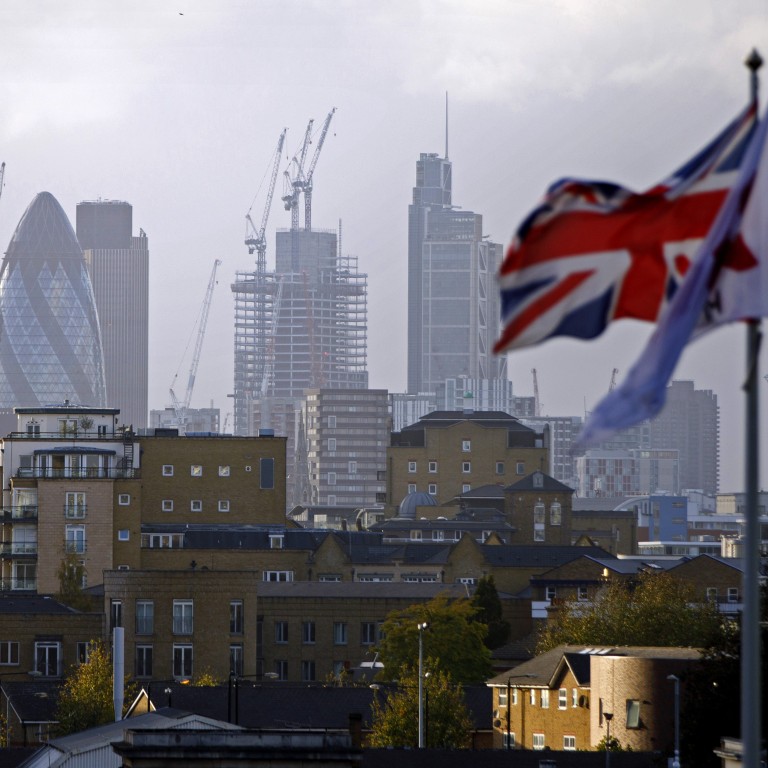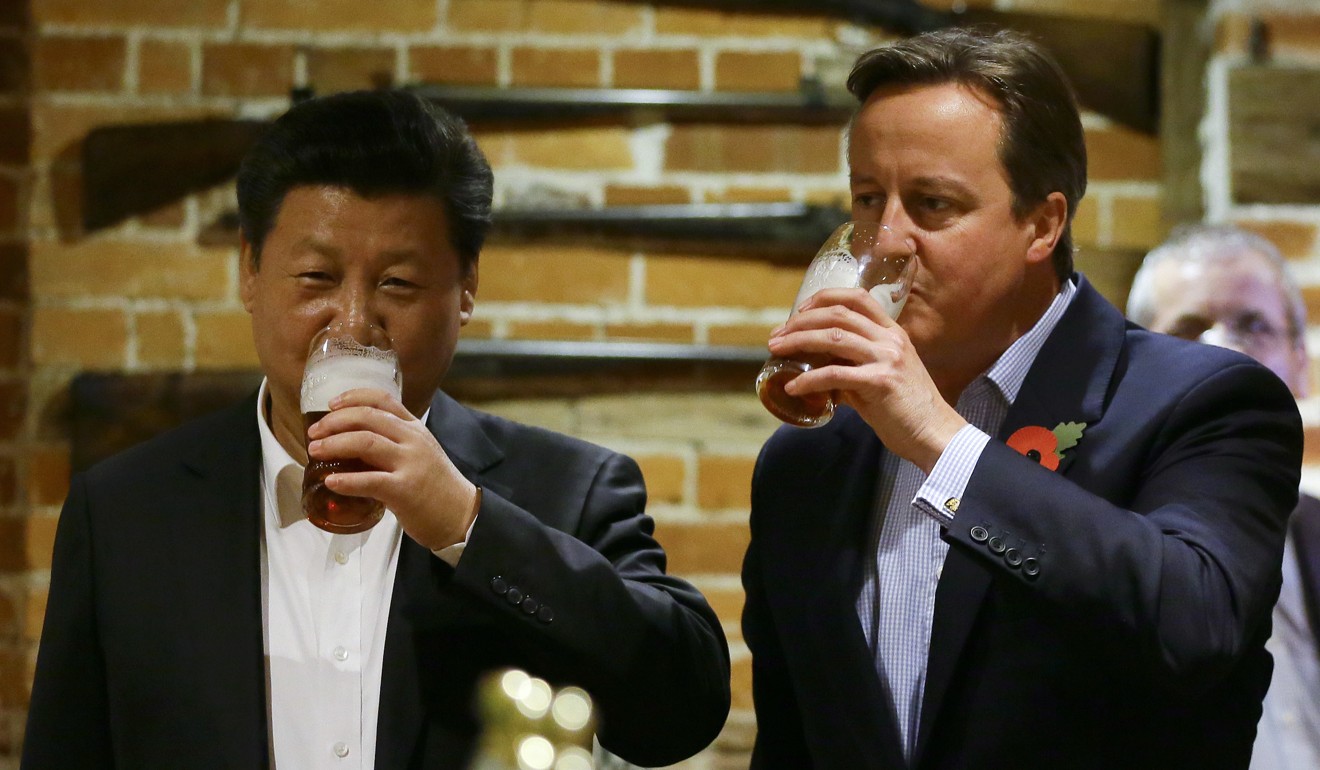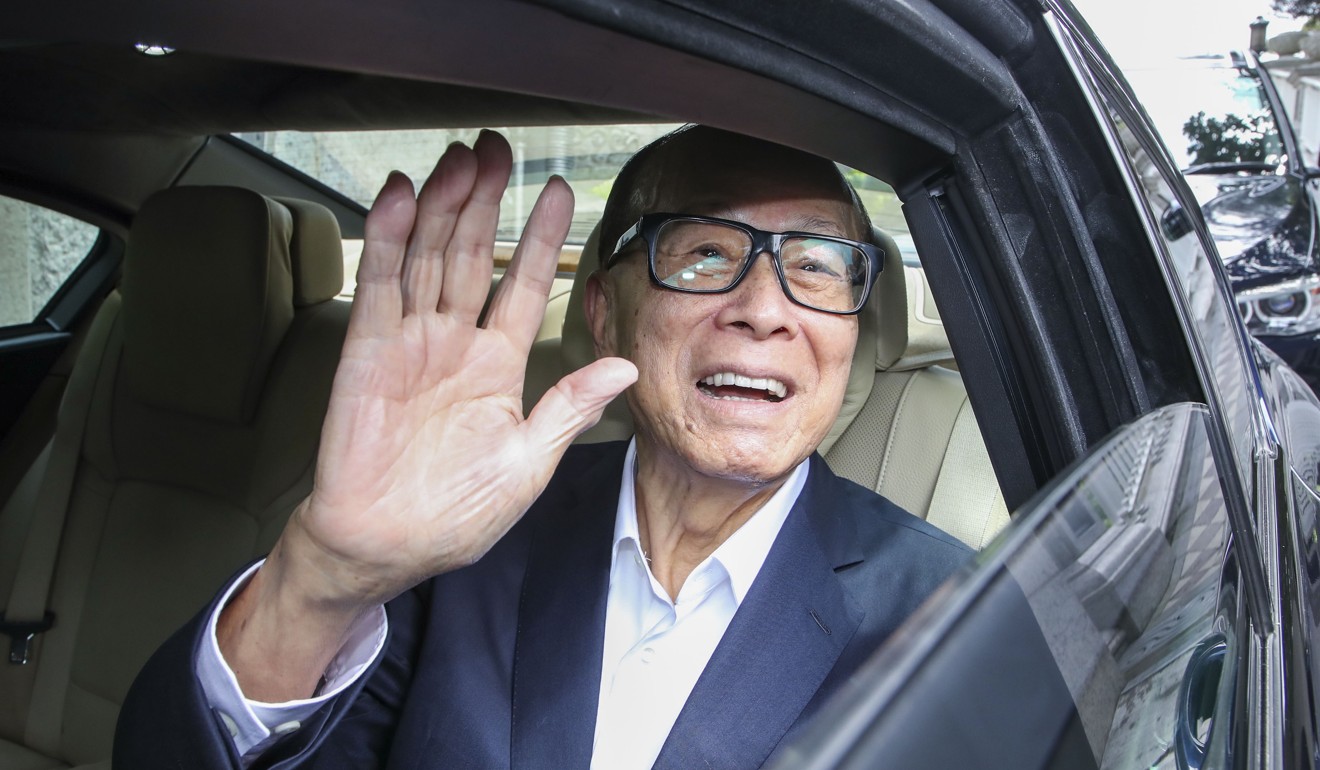
China’s super-rich embark on British spending spree as pound nosedives
- Chinese companies have made 15 big acquisitions in Britain so far this year, spending US$8.3 billion on everything from schools to skyscrapers
- Recent deals include US$3.3 billion purchase of pub chain Greene King by Li Ka-shing, Hong Kong’s richest man
China’s president, Xi Jinping, and David Cameron famously sealed their countries’ “golden era” friendship in 2015 over a pint of Greene King IPA at the Plough at Cadsden, a five-minute drive from the then prime minister’s Chequers country residence.
They were clearly a nice couple of pints. A year later the Chinese investment firm SinoFortone bought the 16th-century pub for £2 million (US$2.54 million), and announced plans (which have not yet materialised) to build 100 replica pubs across China.
And, this week, the family of Hong Kong’s richest person, Li Ka-shing, bought out all of Greene King including 2,700 pubs, restaurants and hotels for £2.7 billion (US$3.3 billion).
Pubs are just a tiny part of a wave of cash flooding to Britain from China and Hong Kong, as the Chinese state and the region’s super-rich take advantage of the collapse in the value of pound to buy up everything from luxury homes, skyscrapers such as London’s Walkie Talkie and Cheesegrater, a third of Hinkley Point C nuclear power station, private schools and Pizza Express.

The Chinese super-rich also either own or have big stakes in Southampton, Wolverhampton Wanderers, West Bromwich Albion and Reading football clubs. The famous Wentworth golf course is owned by the Thai-Chinese billionaire Chanchai Ruayrungruang, one of Asia’s richest men with an estimated US$11 billion fortune. Wang Jianlin, China’s wealthiest man, owns the luxury yacht maker Sunseeker.
Chinese companies have made 15 big acquisitions in Britain so far this year, spending £6.75 billion (US$8.3 billion) – already more than the US$6 billion spent on 23 deals last year.
Angus Knowles-Cutler, Deloitte’s vice-chair and the head of its China Services Group, said he expected Chinese people to spend more on both British homes and businesses whatever the outcome of Brexit.
Knowles-Cutler, who visits China four or five times a year, said: “They invest more in the UK than elsewhere, and I think that will increase if anything. The UK is seen as very cheap now.
Should you delay buying London property and wait for stamp duty cuts?
“When they look at the UK they think of all the things we are good at. They look at the UK as a small island and wonder how it is that we have the second-highest Nobel Prizes [after the US] and came second in the 2016 Olympics [with 27 gold medals, behind the US with 46 and just ahead of China with 26]”.
Knowles-Cutler said key items on Chinese shopping lists were education, intellectual property and branded goods that could be taken back to China and sold at scale to the country’s booming middle classes. There are 109 million middle-class people in China compared with 92 million in the US, according to a report by Credit Suisse.
Among the British firms sold to the Chinese or facing takeover bids so far this year:
- The money transfer company WorldFirst was sold to Ant Financial, reportedly for £520 million. Ant Financial is an affiliate of Alibaba Group Holding, which owns South China Morning Post.

- The billionaire Zhang Lei’s Hillhouse Capital picked up Loch Lomond Distillers for £400 million.
- The Chinese conglomerate Fosun International, which was founded by the Chinese billionaire Guo Guangchang, owns Wolves FC and is in talks to buy the 178-year-old package holiday operator Thomas Cook.
- Other firms considered to be at risk of a takeover include the supermarket Morrisons and the Premier Inn owner Whitbread.
Chinese state-owned railway constructors and operators are also being tapped up to help deliver high-speed rail project HS2, if the project gets the go-ahead. The chief executive of HS2, Mark Thurston, flew to Beijing recently to discuss China’s offer to provide “a wholesale package to build” the £55.7 billion network.
Knowles-Cutler said he expected British technology companies to also be targeted by Chinese money as the country concentrates on its “Made in China 2025” vision to move away from being the world’s factory and instead design and manufacture more of its own high-value products and services.
Northeastern rust belt sees ‘Made in China 2025’ plan a linchpin of its future
He said: “They want to be the leaders in electric cars and green technology, they’re very interested in next generation materials and robotics. People have a tendency to look to the US for future business models, but I believe we should look to China for the future of the digital economy.”
Chinese companies are also looking at buying up more of Britain’s private schools. Harrow and Dulwich College have long-established Chinese outposts, five British schools opened up in China last year and another nine are expected this year.
This summer Bright Scholar, the largest operator of international and bilingual schools in China and majority-owned by the billionaire Yeung Kwok-keung, bought CATS colleges for £150 million. It said the purchase of CATS – which owns day and boarding schools in Cambridge, London, Canterbury and Shanghai – was part of its aim to build a “global network of premium schools”.
Ed Ratcliffe, the head of Asia House, a consultancy that advises Chinese companies on British investments, said: “A lot of people in China want to get their money out, and the UK is seen as one of the best locations because of our strong legal system and protections. Their money will be neutral once it’s in the UK, and safe if the Chinese government changes its policies.”

